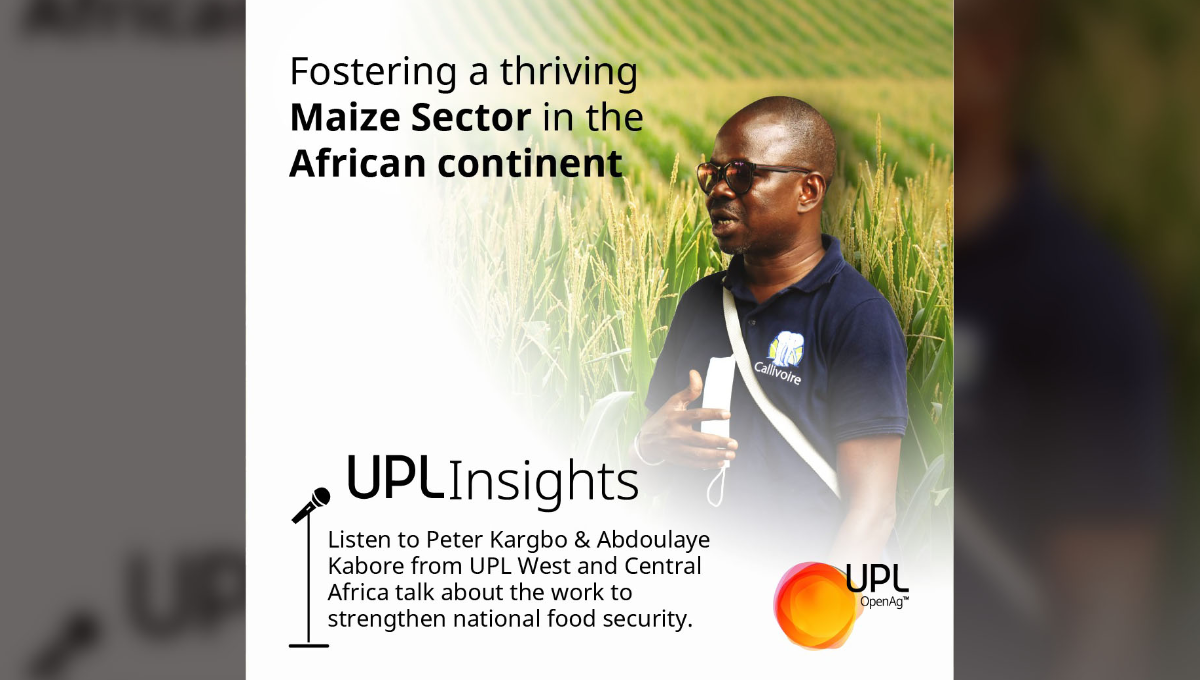In our latest UPL Insights podcast, we are delving deep into the field of one of the most important food crops in the world: maize
Maize has become the second most-produced crop globally and is a staple food for an estimated 50% of the population in Sub-Saharan Africa. Its significance across the African continent will continue to grow with demand for maize predicted to triple by 2050, including in Sierra Leone where the population growth rate is one of the highest in the world. Yet, despite having climatic conditions conducive to maize cultivation, Sierra Leone is heavily dependent on maize imports to satisfy local needs.
In order to close this yield gap, UPL partnered with Social Business Development (SBD) to launch a pilot project which aims to eliminate the country’s import reliance and foster a thriving maize sector that meets the needs of millions of people in Sierra Leone.
Whether you’re an industry professional or just looking to learn more about the maize in your pantry, join our host Florent Clair as he speaks with Peter Kargbo, Sierra Leone Country Farm Manager, SBD, and Abdoulaye Kabore, Rice Development Manager for UPL West & Central Africa, about our work with SBD to strengthen the maize value chain and ensure national food security and self-reliance
